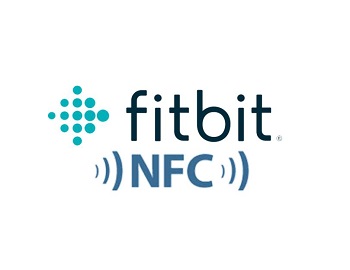New Fitbit band could function as a mobile wallet.
Major developers of simple yet popular fitness trackers are constantly looking for new ways to make their products stand out from the competition. Last week, one of these top developers, Fitbit Inc., revealed that it has purchased wearable payment technology assets from Coin, a Silicon Valley startup that manufactures devices which use near-field communication (NFC) technology, reported Reuters.
Fitbit is not the first maker of wearables to offer a mobile payment option via its device.
Although Fitbit is the leader of the wearable devices market, it isn’t the first developer of this tech to implement a mobile payment solution into its product. Jawbone, its main competitor, has already partnered with American Express Co, enabling Jawbone users to pay via its premium fitness band UP4.
 The new deal that Fitbit has made with Coin will help it to remain on top of its game and enter the NFC technology market. This is an important move for the company because NFC continues to gain in popularity with retailers and users. Currently, NFC has been prominently featured in Apple Watch and other mobile devices as well as in well-known payment services including Apple Pay, Google Wallet and Samsung Pay.
The new deal that Fitbit has made with Coin will help it to remain on top of its game and enter the NFC technology market. This is an important move for the company because NFC continues to gain in popularity with retailers and users. Currently, NFC has been prominently featured in Apple Watch and other mobile devices as well as in well-known payment services including Apple Pay, Google Wallet and Samsung Pay.
Fitbit’s wearable payment technology plan is being reserved for future devices.
While Fitbit has announced the acquisition of Coin’s assets, the dominating wearables maker does not have any plans to incorporate the NFC tech into any of its products this year. However, the acquisition does give the company the advantage of developing an impressive NFC payments solution that is likely to be implemented into its future devices.
James Park, CEO and co-founder of Fitbit, said in a statement that the company is “focused on making wearable devices that motivate people to reach their health and fitness goals, and that also make their lives easier with the smart features they need most,” adding that “Coin has been one of the key innovators in advanced payment solutions.”
Park said that adding the wearable payment technology into their products will further Fitbit’s strategy of making its products “an indispensible part of people’s lives.”
MasterCard announces partnership with Coin and WiseKey
MasterCard has become heavily involved in the mobile payments space and the company is looking to make this sector more secure than it has ever been. MasterCard has announced that it has partnered with Coin and WiseKey. The partnership with Coin may be unexpected, as the company has encountered trouble with financial institutions in the past in regards to its smart card, which emulated credit and debit cards. Despite this, however, MasterCard believes that its new partnerships will improve the security of mobile commerce.
Partnership aims to launch new system to ensure the security of mobile commerce
Through the partnership, a new developer program will be launched, providing access to an application program interface (API) to efficiently handle mobile transactions made through wearable devices as well as smartphones and tablets. MasterCard and Coin will work together to find ways to efficiently provide digitized card information that merchants can use to authenticate purchases. This is intended to track digital purchases for security purposes, allowing MasterCard and other companies to effectively crack down on fraud.
Wearable devices will have a role to play in the digital commerce space and MasterCard wants these devices to be safe
 The partnership with WiseKey, a company that specializes in security, focuses specifically on wearable devices. These devices have yet to become mainstream, but the launch of products like Apple Watch have highlighted how they can be used to make mobile payments. MasterCard and WiseKey want to ensure that the transactions made through these devices is secure, which may improve their popularity among consumers that want to use these devices to pay for products in physical stores.
The partnership with WiseKey, a company that specializes in security, focuses specifically on wearable devices. These devices have yet to become mainstream, but the launch of products like Apple Watch have highlighted how they can be used to make mobile payments. MasterCard and WiseKey want to ensure that the transactions made through these devices is secure, which may improve their popularity among consumers that want to use these devices to pay for products in physical stores.
Security continues to be a main priority for those involved in mobile commerce
Security has long been a major issue in the mobile commerce space. Many consumers have avoided making mobile transactions because of security concerns, believing that their sensitive information would be put at risk. Several companies have begun improving the security of the mobile commerce space in order to increase confidence among consumers. MasterCard, as well as other financial organizations, have made significant progress in this regard over the past few years.
 The new deal that Fitbit has made with Coin will help it to remain on top of its game and enter the NFC technology market. This is an important move for the company because NFC continues to gain in popularity with retailers and users. Currently, NFC has been prominently featured in Apple Watch and other mobile devices as well as in well-known payment services including Apple Pay, Google Wallet and Samsung Pay.
The new deal that Fitbit has made with Coin will help it to remain on top of its game and enter the NFC technology market. This is an important move for the company because NFC continues to gain in popularity with retailers and users. Currently, NFC has been prominently featured in Apple Watch and other mobile devices as well as in well-known payment services including Apple Pay, Google Wallet and Samsung Pay.
 The partnership with WiseKey, a company that specializes in security, focuses specifically on wearable devices. These devices have yet to become mainstream, but the launch of products like
The partnership with WiseKey, a company that specializes in security, focuses specifically on wearable devices. These devices have yet to become mainstream, but the launch of products like 